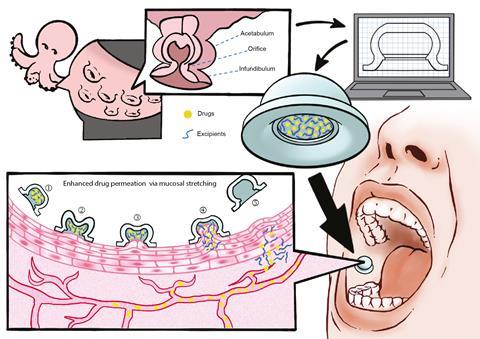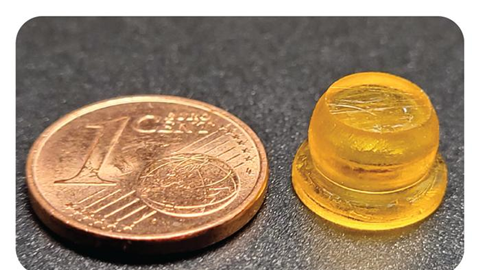Swiss researchers are taking inspiration from octopus suckers for a new, non-invasive method of delivering biopharmaceuticals, reports Science Translational Medicine.
A major problem with many biopharmaceuticals, despite their good efficacy, is that they have to be administered by injection because of their high molecular weight and relative instability. When administered orally, they often break down too quickly. There are devices that inject the drugs directly into the gastrointestinal mucosa, but these have not yet proven to be robust and safe.
A group of researchers at the Institute of Pharmaceutical Sciences in Zurich is developing a new technology to deliver this type of drug. They have been inspired by the physiology of octopus suckers. Their suckers can be applied to the oral mucosa, where they pull the wall into the sucker, stretching it and increasing the adsorption of the drug. A trial in dogs showed that it improved the absorption of desmopressin compared to oral tablets. The volunteers rated the suction cup as acceptable. The researchers have published their findings in Science Translational Medicine.
Their suction cup orifice design (SCOD) combines non-invasive stretching of the oral mucosa with an agent that helps make the mucosa more permeable. They compared their octopus suction cup to a regular suction cup, which has a simpler shape. Their suction patches adhere strongly and mechanically deform the mucosa effectively. Patients can also apply the suction patch themselves without the need for a doctor. The researchers believe that their invention could provide a simple but effective way of delivering drugs directly into the bloodstream without having to pass through the gastrointestinal tract.
Luo et al. (2023) Science Translational Medicine https://doi.org/10.1126/scitranslmed.abq1887














Nog geen opmerkingen